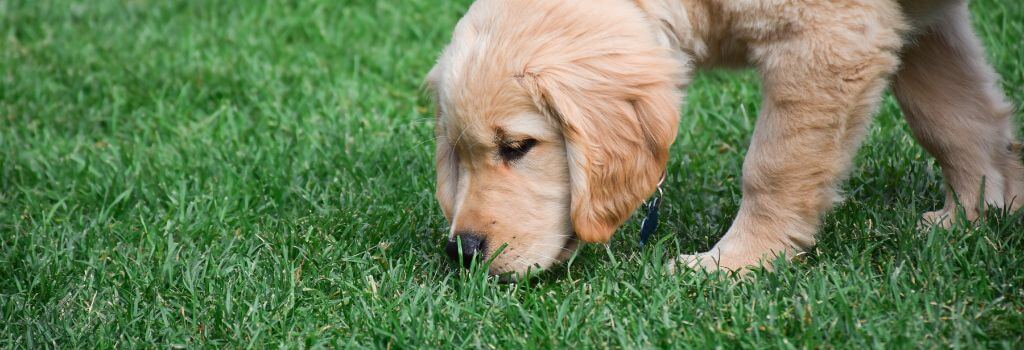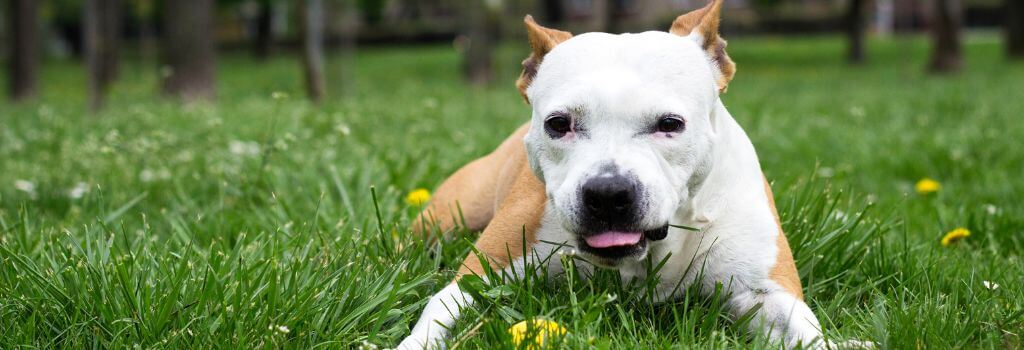When it comes to behavior, dogs often do a variety of weird things that leave their owners going, “Huh?” At Newport Harbor Animal Hospital, we often get asked by concerned pet owners, "Why does my dog eat grass?" It's a common behavior, but for many pet owners, it’s strange to see their dogs head out into the yard and start chowing down on their lawn.
For years, many have assumed it's linked to an upset stomach or dietary deficiency. But what if we told you that the answer is more complex and, perhaps, more natural?
Challenging the Common Beliefs on Why Dogs Eat Grass
If you search “What does it mean when a dog eats grass” or “Why is my dog eating grass,” you’re more than likely to find numerous resources talking about how your dog is likely missing key nutrients in their diet, has an upset stomach and are trying to induce vomiting, or is just bored and is looking for something to do.
However, a research study conducted by Dr. Benjamin L. Hart and his colleagues at UC Davis challenged the prevailing theories on why dogs eat grass and offered new insights into the age-old question of “Why do dogs eat grass?” The study utilized a web-based survey to reach over 1,500 dog owners and asked respondents questions about their dogs’ plant-eating habits and overall diet, as well as their sex, gonadal status, breed, and age.

What the Research Found:
- Common Behavior: A vast majority of dogs (68% in the web survey) eat plants, particularly grass, on a regular basis (daily or weekly).
- Not Usually Linked to Illness: Only a small percentage (8%) of dogs showed signs of illness before eating plants.
- Vomiting Is Incidental: While some dogs do vomit after eating grass (22% in the web survey), it's not a regular occurrence and seems to be incidental rather than caused by plant consumption.
- Age Matters: Younger dogs tend to eat plants more frequently than older dogs and are less likely to show signs of illness or vomit afterward.
- Diet Doesn't Seem to Play a Role: The study found no correlation between a dog's diet (commercial, table scraps, raw food) and their propensity to eat grass.
Herbal Prophylaxis: An Evolutionary Explanation for Why Dogs Eat Grass
So, if it's not about illness or diet, what's the reason? Dr. Hart's research suggests an ethological explanation: herbal prophylaxis. This theory proposes that plant eating is an innate behavior inherited from wild canid ancestors that allows dogs a form of “self-medication.”
Actions like digging, chasing, and hunting prey are all instinctual behaviors our domesticated pet dogs have retained from their ancestors, who needed these behaviors for survival in the wild. With so many behaviors associated with wild canids still present in our dogs today, it’s logical to connect the action of plant-eating back to inherited instincts. Dr. Hart suggested a few reasons for this behavior to carry through generations of dogs:
- In the wild, consuming plants could help purge intestinal parasites (nematodes) by increasing intestinal motility and wrapping around the worms.
- Younger animals, more susceptible to parasites, may engage in this behavior more frequently as a form of self-medication.
Subsequent studies have supported Dr. Hart’s findings and report that the belief dogs eat grass to induce vomiting is not supported by research, suggesting that grass eating is a normal behavior rather than a sign of illness or gastrointestinal distress. For example, a 2021 study conducted by researchers at NC State examined dogs’ interactions with turfgrass and confirmed Hart’s findings that vomiting with grass ingestion in dogs was incidental and that no studies have provided evidence that prevailing claims on why dogs eat grass are largely unproven.
What About Cats Eating Plants?
According to Dr. Hart, preliminary research suggests that cats also engage in plant-eating, though perhaps less frequently than dogs. Similar to dogs, it's not usually linked to illness or vomiting, but is instead a natural behavior cats are prone to. Cats seem to prefer non-grass plants, with some common favorites including cat grass, cat nip, mint, parsley, and dill.

Dogs Eating Grass: What This Means for You and Your Pet
Rest assured, grass eating is a common and often normal behavior in dogs, and does not necessarily indicate that they are sick or have an upset stomach. Just be sure to keep an eye on the type of plants your dog is trying to get a taste of, as some plants are toxic to dogs and can lead to unwanted medical emergencies.
If your dog shows persistent signs of illness before eating plants or if vomiting is frequent and prolonged, it’s important to get in touch with your veterinarian, as vomiting can indicate more serious illnesses and lead to other complications, like dehydration.
If you have questions and you'd like to reach out to us, you can call us directly at (949) 612-2756, or you can email us at [email protected]. Don't forget to follow us on social media Facebook, Instagram.
